#‘all the shah’s men’ by Stephen kinzer
Explore tagged Tumblr posts
Text

[photo id: Screenshot of a tweet from @ achmat x that says “Dr. King said we live in an inescapable network of mutuality. You can not normalize America overthrowing governments and installing dictators in the Global South and not expect fascism at home.”]
#I beg yall to start reading about the us government and its involvement with coups#and the eradication of indidenous peoples#start with the history of Hawaii#then start reading about the banana republic#read ‘Washington bullets’ by Vijay prashad#we cannot vote this out#the empire must fall#us politics#presidential debate#‘our history is our future’ by Nick estes#‘all the shah’s men’ by Stephen kinzer#‘cobalt red’ by siddarth kara
7 notes
·
View notes
Text
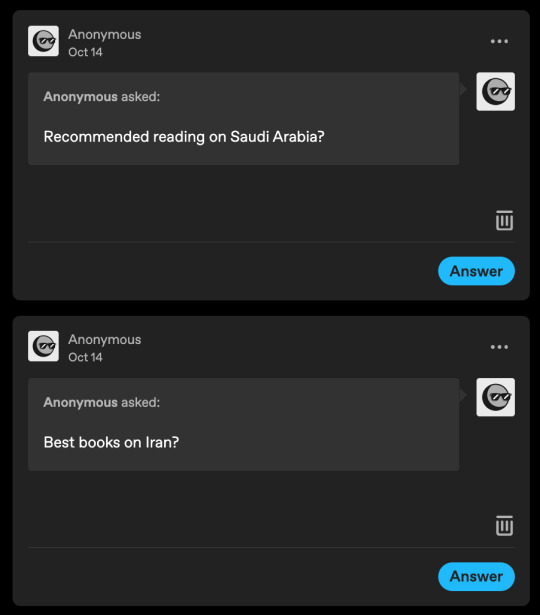
Since these questions were sent at about the same time, I'm going to answer them together in the same post.
There's actually a great book that came out in 2020 about the geopolitical rivalry between Saudi Arabia and Iran that really heated up following the Islamic Revolution in Iran that overthrew the Shah in 1979 in favor of the theocracy of the Ayatollah Khomeini: Black Wave: Saudi Arabia, Iran, and the Forty-Year Rivalry That Unraveled Culture, Religion, and Collective Memory in the Middle East by Kim Ghattas (BOOK | KINDLE | AUDIO). It's one of the better books that I've read in the past few years and the ideal book to pick up if you're interested in the two most powerful Islamic nations of the Middle East.
Another good book that focuses on both countries is Andrew Scott Cooper's 2012 book The Oil Kings: How the U.S., Iran, and Saudi Arabia Changed the Balance of Power in the Middle East (BOOK | KINDLE | AUDIO).
SAUDI ARABIA (I've read A LOT of books about Saudi Arabia over the past few years, so I could go on-and-on, but I'll try to limit myself to just a few recommendations!) •The Kingdom: Arabia and the House of Sa'ud by Robert Lacey (BOOK | AUDIO) •Inside the Kingdom: Kings, Clerics, Modernists, Terrorists, and the Struggle for Saudi Arabia by Robert Lacey (BOOK | KINDLE | AUDIO) •Ibn Saud: The Desert Warrior Who Created the Kingdom of Saudi Arabia by Barbara Bray and Michael Darlow (BOOK | KINDLE | AUDIO) •The Siege of Mecca: The 1979 Uprising at Islam's Holiest Shrine by Yaroslav Trofimov (BOOK | KINDLE | AUDIO) •Saudi Arabia in the Nineteenth Century by R. Bayly Winder •King Faisal of Saudi Arabia: Personality, Faith and Times by Alexei Vassiliev (BOOK | KINDLE) •Kings and Presidents: Saudi Arabia and the United States Since FDR by Bruce Riedel (BOOK | KINDLE)
IRAN •The Fall of Heaven: The Pahlavis and the Final Days of Imperial Iran by Andrew Scott Cooper (BOOK | KINDLE | AUDIO) •America and Iran: A History, 1720 to the Present by John Ghazvinian (BOOK | KINDLE | AUDIO) •The Iran-Iraq War by Pierre Razoux (BOOK | KINDLE) •A History of Iran: Empire of the Mind by Michael Axworthy (BOOK | KINDLE | AUDIO) •Iran: A Modern History by Abbas Amanat (BOOK | KINDLE | AUDIO) •All the Shah's Men: An American Coup and the Roots of Middle East Terror by Stephen Kinzer (BOOK | KINDLE) •Guests of the Ayatollah: The Iran Hostage Crisis: The First Battle in America's War with Militant Islam by Mark Bowden (BOOK | KINDLE | AUDIO) •The Twilight War: The Secret History of America's Thirty-Year Conflict with Iran by David Crist (BOOK | KINDLE | AUDIO)
I'll stop there for now. I could list scores of books because I'm fascinated by the history of both countries, their place in the world, and their relations with one another and with the United States. I probably read a lot more about Saudi Arabia and Iran -- and their leaders -- than most people would expect. So I have even more suggestions if you need them...but hopefully this is a good start!
#Books#Book Recommendations#Book Suggestions#Iran#Saudi Arabia#History#Politics#Geopolitics#Middle East#Islam#Books about Iran#Books about Saudi Arabia#House of Saud#Iranian Revolution#Islamic Revolution#Shah of Iran#Ayatollah Khomeini
39 notes
·
View notes
Text
So you guys might have heard me mention this thing called Operation Ajax. Operation Ajax -- known as Operation Boot in the UK -- was a coup carried out against the 1953 Iranian prime minister by the US and UK governments. You can read about it in the book All The Shah's Men by Stephen Kinzer, but I just found this meme and it really drove home what an absolutely disgusting racist Dwight Eisenhower -- the US president behind the coup -- was.

Cause it feels like the name Operation Ajax was chosen to show how he thought white Christians were stronger than Muslims and South-East(?) Asians.
Fun Fact: Operation Ajax served as the inspiration for Frank Herbert's scifi book series Dune -- the plot is a metaphor for oil wars🙃
#random thoughts#eww#only in america#us history#global history#the middle east#christofascism#dwight eisenhower#this is so gross#books books books#books and reading#things they dont want you to know#all the shahs men#dune#racism#islamophobia
3 notes
·
View notes
Text
From the bottom of my heart, I think all the shah's men by stephen kinzer should be mandatory reading in high school us history classes
2 notes
·
View notes
Text
anyway if anyone wants to learn more abt US foreign intervention i def recommend reading all the shah's men and the brothers by stephen kinzer, as well as shattered hope by piero gleijeses. ive also seen bitter fruit (also by stephen kinzer) referenced in multiple books ive read, so that ones also probably good, i just havent read it yet.
ive also seen open veins of latin america recommended a lot, and ive read it, its good, id just recommend doing a bit of other reading first bc it references a lot of events that might be hard to keep track of w/o prior knowledge.
1 note
·
View note
Text

Book 32, 2019: 'All The Shah's Men' by Stephen Kinzer.
An American coup and the roots of Middle East terror.
Iran. Oil. British exploitation. American interference. The Shah. 1st democratic regime. CIA's 1953 coup. Mossadegh. Nationalisation. Muslim fundamentalism. Anti-Americanism. Middle East. WW1. WW2. History.
Weltanschauung!
2 notes
·
View notes
Text
tagged by @laedimuck thx!
favorite color — any shade of blue!
currently reading — a LOT! right now: all the shah's men by stephen kinzer, leaving isn't the hardest thing by lauren hough, and fallout by lesley blume
last song — summer nights by siames
last movie/series — the ritual! i overestimated how scary it would be tbh
sweet, savoury, or spicy — sweet!
craving — action... i wanna go for a run but i’m stuck at work..... also maybe a donut idk.......
tea or coffee — tea for sure
currently working on — four different fics, an essay for school, and some extra language learning notes for myself
i tag: @megsis @universe-exhale @szelkovica @wallywastaken @hymntothenight @sharkentine @angelllsoft @anemone-hedge @blazenek @der-strum @tourist-town-gothic @forestg0ddess @gothicfaggot @treehog
4 notes
·
View notes
Text
It's All the Shah's Men: An American Coup and the Roots of Middle East Terror by Stephen Kinzer
So it's not the most pleasant subject matter but it is really interesting and has a lot of good historical insight.
Yeah I tend to just write whatever the hell I feel like which means my books aren't the most easily marketable, but it's what I want to do!
Real history was so varied and interesting, and the way that morality and society has shifted over time is fascinating to go into, but so many people are just like "well this is what I saw in the movies so this is how it was" and do no research at all
not to mention a lot of those stories also really hate women and love to have violence against women as a central part where it's like. Sure, that happened sometimes but like… Maybe settle down?
gender roles in history are not the same as you think they are, they're not the same as today,and it also was not nearly as dark or boring or backwards or whatever word as you think.
Obviously I wouldn't be working on a cross stitch project like the one I'm working on if I didn't love Arslan Senki but I cannot emphasize enough how much it is the story of all time for me
there is not a single version that I dislike, or that I think brings nothing to the experience of the story
but when you boil it down, the thing that has held me so captivated and brought me back to the story over and over and over is that Arslan himself is so gentle, and kind, and softhearted
and not only does the story not punish him for that like so many would, but those are the traits about him that his retainers love, and they would do anything to prevent him from losing that gentleness
the story shows over and over again that Arlsan is right and that he doesn't have to change who he is in order to learn to be a good king
and it just really gets me that in a story that can so often feature violence and deceit, that the core value is still that being kind is worth it
72 notes
·
View notes
Note
Hello there! I have loved all of your fanfic and star wars book recs so far and you seem very well read.I was wondering if you have any non star wars book recommendations?
I actually have a terrifyingly large book rec list dear anon. I work at a book store so me trying to proffer people with my favorites or what I’m obsessed with is an everyday occurance for me. But for the sake of not being ridiculous I’ll try and narrow it down some.
My all time favorites that I always recommend no matter what.
1. Lord of the Rings by J. R. R. Tolkien
2.The Princess Bride by William Goldman
3.Cloud Atlas by David Mitchell
4.The Road by Cormac McCarthy
5.The Sirens of Titan by Kurt Vonnegut
6.Bel Canto by Anne Patchet
7.The Things They Carried by Tim O’Brien
8.Perfume:The Story of a Murderer by Patrick Suskind
9.Trainspotting by Irvine Welsh
10.Knockemstiff by Donald Ray Pollock
Favorite Sci-fi outside of Star Wars
1.The Martian by Andy Weir
2.Artemis by Andy Weir
3.Altered Carbon by Richard Morgan
4.Ancillary Justice by Ann Leckie
5.Redshirts by John Scalzi
6.Bloodchild by Octavia Butler
7.A Confusion of Princes by Garth Nix
Great fantasy that isn’t just a knock-off of Tolkien
1.The Redwall series by Brian Jacques
2.Game of Thrones by George R. R. Martin
3.Anything by Neil Gaiman But American Gods and Good Omens are my favorites
4.The Discworld Series by Terry Pratchett
5.A Discovery of Witches (All Souls Trilogy) by Deborah Harkness
6.The Rangers Apprentice Series by John Flannagan
7.Circe by Madeline Miller
8.Song of Achilles by Madeline Miller
Author highlights
Bernard Cornwell-All time favorite Historical fiction author. He writes on everything from the Danes invading Britain to the American Revolution.
Ann Patchett-One of my absolute favorite living literature writers.
Irvine Welsh-Besides his more well known Trainspotting Welsh has written several other bangers that I think are just as Titillating and full of merit.
Cormac McCarthy-Another literature writer who I’ve never read anything by that I haven’t just adored. The Road is his best known but All the Pretty Horses and Blood Meridian are also phenomenal.
Life Changing Nonfiction
1.Literally any of Anthony Bourdain’s memoirs,seriously.
2.Killers of the Flower Moon by David Grant
3. The Lemon Tree by Sandy Tolan
4.Man’s Search for Meaning by Victor Frankl
5.All the Shah’s Men by Stephen Kinzer
6.The Better Angels of Our Nature by Steven Pinker
7.The Language Instinct by Steven Pinker
8.Storm of Steel by Earnst Jünger
43 notes
·
View notes
Text
Sunday, June 18, 2017
Got up at my usual time and read some Invisible Man and started Animal Farm and All The Shah’s Men.
Played some Skyrim and then read some more.
We went over the my parents’ since it’s Father’s Day and went out to Paolo and Bill for dinner, where I had a very good lasagna.
Read some more of Invisible Man while Bryan helped my dad in the garden, and then cleared a couple areas in Skyrim when we got home.
If it seems like I’ve been taking longer on Invisible Man than most books that’s certainly true, but it’s quite a long book - according to the internet it’s 177,000 words (ish), for comparison to something that most people have read, To Kill a Mockingbird is only 99,000 words. It’s also very dense (in a good way), Ellison reminds me a bit of Dickens in his lengthy and vivid descriptions. So, I’m not taking a long time on it because I dislike it. It’s just quite long.
#journal#june#sunday#reading#read#book#books#library#invisible man#ralph ellison#animal farm#george orwell#all the shah's men#stephen kinzer#father's day#paolo and bill#lasagna#skyrim#The Elder Scrolls#tes: skyrim#game#gaming#steam
1 note
·
View note
Link
On Aug. 19, 2013, the CIA publicly admitted for the first time its involvement in the 1953 coup against Iran's elected Prime Minister Mohammad Mossadegh.
The documents provided details of the CIA's plan at the time, which was led by senior officer Kermit Roosevelt Jr., the grandson of U.S. President Theodore Roosevelt. Over the course of four days in August 1953, Roosevelt would orchestrate not one, but two attempts to destabilize the government of Iran, forever changing the relationship between the country and the U.S. In this episode, we go back to retrace what happened in the inaugural episode of NPR's new history podcast, Throughline.
Mohammad Mossadegh was a beloved figure in Iran. During his tenure, he introduced a range of social and economic policies, the most significant being the nationalization of the Iranian oil industry. Great Britain had controlled Iran's oil for decades through the Anglo-Iranian Oil Co. After months of talks the prime minister broke off negotiations and denied the British any further involvement in Iran's oil industry. Britain then appealed to the United States for help, which eventually led the CIA to orchestrate the overthrow of Mossadegh and restore power to Mohammad Reza Pahlavi, the last Shah of Iran.
According to Stephen Kinzer, author of the book All the Shah's Men, Roosevelt quickly seized control of the Iranian press by buying them off with bribes and circulating anti-Mossadegh propaganda. He recruited allies among the Islamic clergy, and he convinced the shah that Mossadegh was a threat. The last step entailed a dramatic attempt to apprehend Mossadegh at his house in the middle of the night. But the coup failed. Mossadegh learned of it and fought back. The next morning, he announced victory over the radio.
12 notes
·
View notes
Text
some fun quotes i got while researching one of the essays i was doing instead of blogging, from lloyd gardner, three kings
Oilman James Moffett, a personal friend of Roosevelt and board chair of SoCal, had a proposal to offer. Why not see the king through the war with a direct subsidy? The U.S. government could purchase up to $6 million a year in petroleum products from the king and everyone would be happy. Unless Ibn Saud received such financial assistance, warned Moffett, "there is grave danger that this independent Arab Kingdom cannot survive the present emergency." FDR liked the idea, but navy secretary Frank Knox could not imagine what to do with the oil. What was being produced in Saudi Arabia was not yet suitable for use in airplanes or even ordinary purposes.21
Mr. Fix It, Harry Hopkins, had another idea. What about LendLease? Passed originally by Congress in the spring of 1941, LendLease was the administration's answer to the problem of sending economic and material aid to Great Britain without creating a new "war debts" issue, which had plagued American relations with Europe in the interwar era. The plan was then extended to the Soviet Union in the fall of 1941, and later to other nations at war. But Saudi Arabia was not at war with the Axis powers, and, as Hopkins ruefully confessed, "just how we could call that outfit a `democracy' I don't know."" A year and a half later, in February 1943, the president suddenly found "the defense of Saudi Arabia ... vital to the defense of the United States." Lend-Lease aid started to flow into Saudi Arabia. What brought about this landmark change? Saudi Arabia was still not at war, still not a democracy, and a possible Axis threat had receded after the North African campaign. So whence came the threat?
Washington officials now suspected the British-despite their financial plight-of trying to "edge their way into" Saudi Arabia at the expense of the American oil companies. Saudi Arabia was "probably the greatest and richest oil field in all the world," declared Harold Ickes, petroleum administrator for war, and the British "never overlooked any opportunity to get in where there was oil."23 But British ambassador Lord Halifax was so upset over presumed threats to postwar British interests throughout the Middle East that he asked for an audience with Roosevelt to clear the air. When he arrived at the White House, FDR produced a rough map he had drawn of the Middle East: "Persian oil, he told him, is yours. We share the oil of Iraq and Kuwait. As for Saudi Arabian oil, it's ours."...
With the Truman Doctrine in 1947 the Americans repeated the assurances that the Athenian representative Euphemus gave to Sicilians at Camarina in 415 B.c.: "We are forced to intervene in many directions simply because we have to be on our guard in many directions; now, as previously, we have come as allies to those of you here who are being oppressed; our help was asked for, and we have not arrived uninvited." Euphemus added, however, that "it is not for you to constitute yourselves judges of our behaviour or to act like schoolmasters and try to make us change our ways. That is not an easy thing to do now."`...
Mossadeq twitted Sir Richard about his religion. Was he a Catholic, asked the prime minister? Yes, said Stokes. Well, he was probably unsuited for his mission, then, because Catholics did not believe in divorce, and Iran was in the process of divorcing AIOC. Sir Richard was not amused. ...
Acheson reported that the British-with Churchill back in power-were adamant all down the line, through the ranks of the civil service. Allowing Iran to "despoil" the British company would surely destroy confidence in British power and the pound sterling, they told the secretary of state, and within months all British property abroad would disappear, and soon after all Western investments. "In my judgment," summarized Acheson, "the cardinal purpose of British policy is not to prevent Iran from going Commie; the cardinal point is to pre serve what they believe to be the last remaining bulwark of Brit solvency; that is their overseas investment and property position.""...
Mossadeq had stopped off in Philadelphia on his way to Washington, where he visited Independence Hall and linked his nationalization policies with the "ideals that inspired the United States to wrest freedom and liberty from Britain in 1776." ...
Defense secretary Charles Wilson lamented bygone days when other right-wing dictators replaced deteriorating right-wing dictatorships: "Nowadays, however, when a dictatorship of the right was replaced by a dictatorship of the left, a state would presently slide into Communism and was irrevocably lost to us."
stephen kinzer, all the shah’s men:
Iranian agents who came in and out of Roosevelt’s villa knew him only by his pseudonym, James Lockridge. As time passed, they naturally developed a sense of comradeship, and some of the Irani- ans, much to Roosevelt’s amusement, began calling him “Jim.” The only times he came close to blowing his cover were during tennis games that he played regularly at the Turkish embassy and on the campus of the French Institute. When he missed a shot, he would curse himself,shouting,“Oh,Roosevelt! ”Several times he was asked why someone named Lockridge would have developed such a habit. He replied that he was a passionate Republican and considered Franklin D. Roosevelt to have been so evil that he used Roosevelt’s name as a curse....
In those early years,Mossadegh developed more than a political perspective. He also began showing extraordinary emotional quali- ties. His boundless self-assurance led him to fight fiercely for his principles, but when he found others unreceptive, he would storm off for long periods of brooding silence. He did this for the first time in 1909, when Mohammad Ali Shah launched his bloody assault on the Majlis.Rather than stay and fight alongside his fellow democrats,he concluded that Iran was not ready for enlightenment and left the country....
In one cable to Washington, he described Mossadegh as “lacking in stability,”“clearly dominated by emotions and prejudices,” and “not quite sane.” In another, he asserted that the National Front was composed of“the street rabble, the extreme left ...extreme Iranian nationalists,some but not all of the more fanatical religious leaders, [and] intellectual leftists, including many who had been educated abroad and did not realize that Iran was not ready for democracy.”
At a meeting of the National Security Council on March 4, Eisenhower wondered aloud why it wasn’t possible “to get some of the people in these down-trodden coun- tries to like us instead of hating us.”
18 notes
·
View notes
Text
Reading List
Just been through my bookcase full of unread books and picked out the most eyecatching and politically relevant ones that I wish I’d read at some point. This isn’t necessarily me saying I’m gonna go read them all now, but hopefully by at least writing these down I’ll be more inclined to finally start!
Mark Fisher - Capitalist Realism: Is there no Alternative?
Ruth Winstone - The Best of Benn
Noam Chomsky – How the World Works
Owen Jones – Chavs: The Demonization of the Working Class
Stephen Kinzer – All the Shah’s Men: An American Coup and the Roots of Middle East Terror
Janine Booth – Autism Equality in the Workplace
Steve Silberman – Neurotribes
Robert Tressell – The Ragged Trousered Philanthropists
#reading list#mark fisher#ruth winstone#noam chomsky#tony benn#owen jones#stephen kinzer#janine booth#steve silberman#robert tressell
4 notes
·
View notes
Text
√ACCESS’ All the Shah’s Men: An American Coup and the Roots of Middle East Terror (MP3 CD) by Stephen Kinzer, Michael Prichard, Jonathan Yen
Download EPUB All the Shah’s Men: An American Coup and the Roots of Middle East Terror (MP3 CD) -> https://viewsmediafashion.blogspot.com/book82.php?asin=1400151066
Size: 17,950 KB
D0WNL0AD PDF Ebook Textbook All the Shah’s Men: An American Coup and the Roots of Middle East Terror (MP3 CD) by Stephen Kinzer, Michael Prichard, Jonathan Yen
D0wnl0ad URL >> https://viewsmediafashion.blogspot.com/away25.php?asin=1400151066
Last access: 70948 user
Last server checked: 10 Minutes ago!
0 notes
Photo
a really good book about american coups/terrorism in the middle east (specifically iran) is All the Shah's Men: An American Coup and the Roots of Middle East Terror by Stephen Kinzer. a pdf is available here.

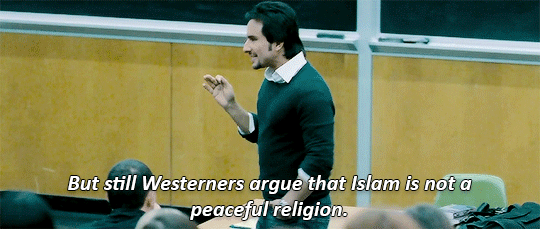
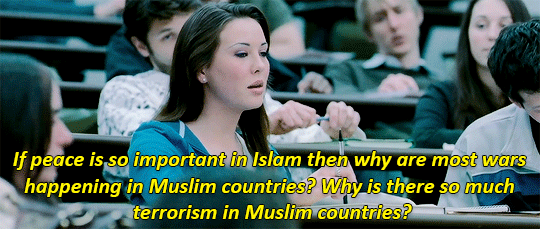
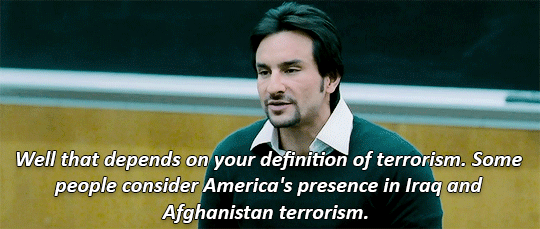

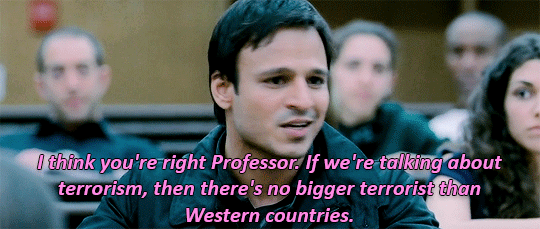


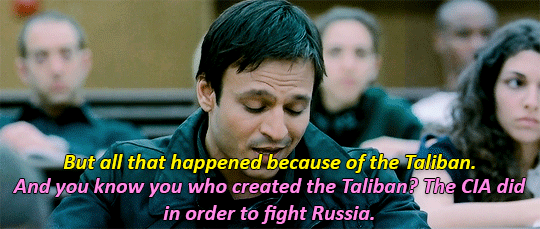

1M notes
·
View notes
Text
All The Shah's Men
All The Shah’s Men
Or, How The CIA Overthrew Iran’s Democracy In 4 Days. An old story but, still current surely! I wish we had never had Oil under our soil! I think that if it would be so, we, as the Persian folk, could have more chance to find our autonomy and own freedom. This book, by Stephen Kinzler, http://Stephen Kinzer is a heart-breaking tell for the people who love democracy. And it also calms my heart…

View On WordPress
0 notes